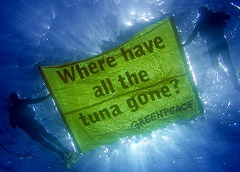Love

Global warming is a dramatically urgent and serious problem. We don't need to wait for governments to find a solution for this problem, each individual can bring an important help adopting a more responsible lifestyle, starting from little, everyday things. It's the only reasonable way to save our planet, before it is too late.
Such being the case, everyone (you & me; w5 & Hbbs) has to be responsible for the problem, keeping holding out and never hesitated to what was right, helping to stop global warming.
Choose energy efficient appliances when making new purchases - Look for the Energy Star label on new appliances to choose the most energy efficient products available.
Install a programmable thermostat
Programmable thermostats will automatically lower the heat or air conditioning at night and raise them again in the morning. They can save you $NTD 3,000 a year on your energy bill.
Clean or replace filters on your furnace and air conditioner - Cleaning a dirty air filter can save 160 kgs of carbon dioxide a year.
Cover your pots while cooking - Doing so can save a lot of the energy needed for preparing the dish. Even better are pressure cookers and steamers: they can save around 70%.
Take a shower instead of a bath
A shower takes up to four times less energy than a bath. To maximize the energy saving, avoid power showers and use low-flow showerheads, which are cheap and provide the same comfort.
Use less hot water - It takes a lot of energy to heat water. You can use less hot water by installing a low flow showerhead (160 kgs of carbon dioxide saved per year) and washing your clothes in cold or warm water (230 kgs saved per year) instead of hot.
Such being the case, everyone (you & me; w5 & Hbbs) has to be responsible for the problem, keeping holding out and never hesitated to what was right, helping to stop global warming.
Choose energy efficient appliances when making new purchases - Look for the Energy Star label on new appliances to choose the most energy efficient products available.
Install a programmable thermostat
Programmable thermostats will automatically lower the heat or air conditioning at night and raise them again in the morning. They can save you $NTD 3,000 a year on your energy bill.
Clean or replace filters on your furnace and air conditioner - Cleaning a dirty air filter can save 160 kgs of carbon dioxide a year.
Cover your pots while cooking - Doing so can save a lot of the energy needed for preparing the dish. Even better are pressure cookers and steamers: they can save around 70%.
Take a shower instead of a bath
A shower takes up to four times less energy than a bath. To maximize the energy saving, avoid power showers and use low-flow showerheads, which are cheap and provide the same comfort.
Use less hot water - It takes a lot of energy to heat water. You can use less hot water by installing a low flow showerhead (160 kgs of carbon dioxide saved per year) and washing your clothes in cold or warm water (230 kgs saved per year) instead of hot.
Love

Be sure you're recycling at home
You can save 1,100 kgs of carbon dioxide a year by recycling half of the waste your household generates.
Buy intelligently - 1 bottle of 1.5l requires less energy and produces less waste than 3 bottles of 0.5l. As well, buy recycled paper products, it takes less 70-90% less energy to make recycled paper and it prevents the loss of forests worldwide.
Reuse your shopping bag
Hey lady, you shopping lady~ just keep in mind, when shopping, it saves energy and waste to use a reusable bag instead of accepting a disposable one in each shop. Waste not only discharges CO2 and methane into the atmosphere, it can also pollute the air, groundwater and soil.
Reduce waste - Most products we buy cause greenhouse gas emissions in one or another way, e.g. during production and distribution. By taking your lunch in a reusable lunch box instead of a disposable one, you save the energy needed to produce new lunch boxes.
Plant a tree - A single tree will absorb one ton of carbon dioxide over its lifetime. Shade provided by trees can also reduce your air conditioning bill by 10 to 15%. The Arbor Day Foundation has information on planting and provides trees you can plant with membership.
Switch to green power - In many areas, you can switch to energy generated by clean, renewable sources such as wind and solar. In some of these, you can even get refunds by government if you choose to switch to a clean energy producer, and you can also earn money by selling the energy you produce and don't use for yourself.
Buy locally grown and produced foods
The average meal in the United States travels 1,900 kms from the farm to your plate. Buying locally will save fuel and keep money in your community.
Buy fresh foods instead of frozen - Frozen food uses 10 times more energy to produce.
You can save 1,100 kgs of carbon dioxide a year by recycling half of the waste your household generates.
Buy intelligently - 1 bottle of 1.5l requires less energy and produces less waste than 3 bottles of 0.5l. As well, buy recycled paper products, it takes less 70-90% less energy to make recycled paper and it prevents the loss of forests worldwide.
Reuse your shopping bag
Hey lady, you shopping lady~ just keep in mind, when shopping, it saves energy and waste to use a reusable bag instead of accepting a disposable one in each shop. Waste not only discharges CO2 and methane into the atmosphere, it can also pollute the air, groundwater and soil.
Reduce waste - Most products we buy cause greenhouse gas emissions in one or another way, e.g. during production and distribution. By taking your lunch in a reusable lunch box instead of a disposable one, you save the energy needed to produce new lunch boxes.
Plant a tree - A single tree will absorb one ton of carbon dioxide over its lifetime. Shade provided by trees can also reduce your air conditioning bill by 10 to 15%. The Arbor Day Foundation has information on planting and provides trees you can plant with membership.
Switch to green power - In many areas, you can switch to energy generated by clean, renewable sources such as wind and solar. In some of these, you can even get refunds by government if you choose to switch to a clean energy producer, and you can also earn money by selling the energy you produce and don't use for yourself.
Buy locally grown and produced foods
The average meal in the United States travels 1,900 kms from the farm to your plate. Buying locally will save fuel and keep money in your community.
Buy fresh foods instead of frozen - Frozen food uses 10 times more energy to produce.
Love

Buy organic foods as much as possible
Organic soils capture and store carbon dioxide at much higher levels than soils from conventional farms. If we grew all of our corn and soybeans organically, we'd remove 260 billion kgs of carbon dioxide from the atmosphere!
Eat less meat - Methane is the second most significant greenhouse gas and cows are one of the greatest methane emitters. Their grassy diet and multiple stomachs cause them to produce methane, which they exhale with every breath.
Reduce the number of miles you drive by walking, biking, carpooling or taking mass transit wherever possible - Avoiding just 10 miles of driving every week would eliminate about 500 pounds of carbon dioxide emissions 1 year! Look for transit options in your area.
Start a carpool with your coworkers or classmates
Sharing a ride with someone just 2 days a week will reduce your carbon dioxide emissions by 720 kgs a year.
Check your tires weekly to make sure they're properly inflated
Proper tire inflation can improve gas mileage by more than 3%. Since every gallon of gasoline saved keeps 10 kgs of carbon dioxide out of the atmosphere, every increase in fuel efficiency makes a difference!
Try car sharing - Need a car but don’t want to global warming? just call your friends–such as Sean- to give you a ride. Friend's car sharing organizations, membership fee just is the friendship, provide access to a car and offer low emission.
Encourage your business (or school) to reduce emissions
You can extend your positive influence on global warming well beyond your home by actively encouraging other to take action.
Encourage the switch to renewable energy
Successfully combating global warming requires a national transition to renewable energy sources such as solar, wind and biomass. These technologies are ready to be deployed more widely but there are regulatory barriers impeding them. Taiwan citizens, take action to break down those barriers with vote.
Protect and conserve forest worldwide
Forests play a critical role in global warming: they store carbon. When forests are burned or cut down, their stored carbon is release into the atmosphere - deforestation now accounts for about 20% of carbon dioxide emissions each year. Conservation International has more information on saving forests from global warming.
Organic soils capture and store carbon dioxide at much higher levels than soils from conventional farms. If we grew all of our corn and soybeans organically, we'd remove 260 billion kgs of carbon dioxide from the atmosphere!
Eat less meat - Methane is the second most significant greenhouse gas and cows are one of the greatest methane emitters. Their grassy diet and multiple stomachs cause them to produce methane, which they exhale with every breath.
Reduce the number of miles you drive by walking, biking, carpooling or taking mass transit wherever possible - Avoiding just 10 miles of driving every week would eliminate about 500 pounds of carbon dioxide emissions 1 year! Look for transit options in your area.
Start a carpool with your coworkers or classmates
Sharing a ride with someone just 2 days a week will reduce your carbon dioxide emissions by 720 kgs a year.
Check your tires weekly to make sure they're properly inflated
Proper tire inflation can improve gas mileage by more than 3%. Since every gallon of gasoline saved keeps 10 kgs of carbon dioxide out of the atmosphere, every increase in fuel efficiency makes a difference!
Try car sharing - Need a car but don’t want to global warming? just call your friends–such as Sean- to give you a ride. Friend's car sharing organizations, membership fee just is the friendship, provide access to a car and offer low emission.
Encourage your business (or school) to reduce emissions
You can extend your positive influence on global warming well beyond your home by actively encouraging other to take action.
Encourage the switch to renewable energy
Successfully combating global warming requires a national transition to renewable energy sources such as solar, wind and biomass. These technologies are ready to be deployed more widely but there are regulatory barriers impeding them. Taiwan citizens, take action to break down those barriers with vote.
Protect and conserve forest worldwide
Forests play a critical role in global warming: they store carbon. When forests are burned or cut down, their stored carbon is release into the atmosphere - deforestation now accounts for about 20% of carbon dioxide emissions each year. Conservation International has more information on saving forests from global warming.

